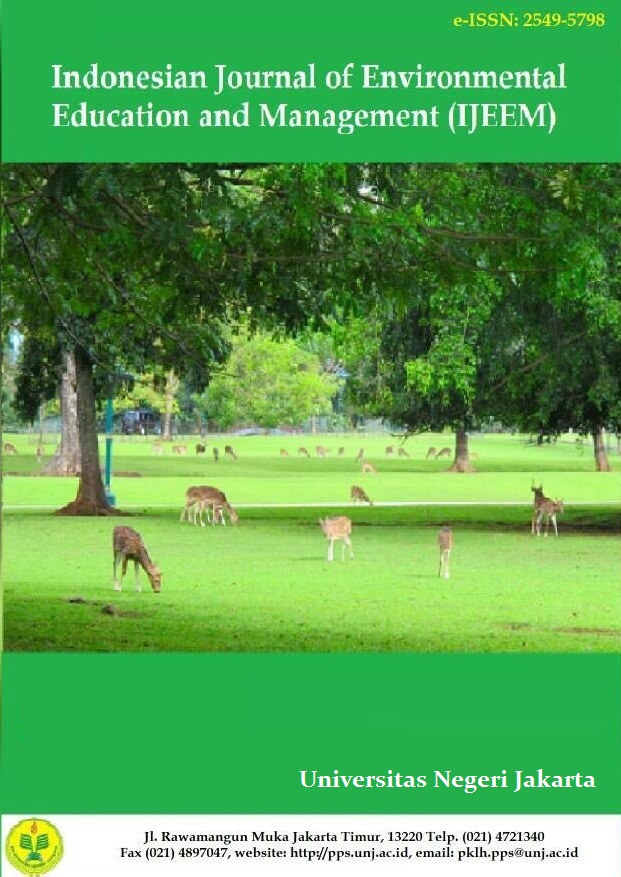Pengaruh School Climate dan Persistence terhadap Counterproductive Behavior (Perilaku Menyimpang terhadap Pelestarian Lingkungan) Siswa SMA
DOI:
https://doi.org/10.21009/IJEEM.061.02Keywords:
Path Analysis, School Climate, Persistence, Counterproductive Behavior, StudentsAbstract
Environmental problems cause threats to environmental sustainability. This problem can be caused by deviant behavior towards environmental preservation or counterproductive behavior. This study aims to determine the influence of school climate and persistence on counterproductive behavior student related to environmental sustainability. The method used is a survey method through causal studies and analyzed by path analysis. The survey was conducted on 70 students at SMAN 48 Jakarta in the odd semester of the 2020/2021 school year. The calculation result of the instrument reliability coefficient is counterproductive behavior 0.782, the school climate is 0.850, and the persistence is 0.917 which indicates that the three instruments can be trusted. The results showed that school climate directly affected persistence significantly, persistence directly affected counterproductive behavior significantly, school climate directly affected counterproductive behavior significantly, and obtained good persistence results as a mediator variable between school climate and counterproductive behavior in students. Therefore, in an effort to reduce counterproductive behavior student, school climate and student persistence factors also need to be considered.






